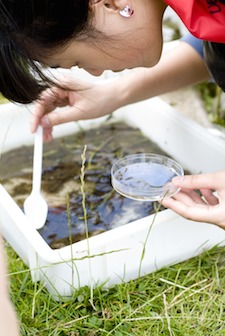successful admissions
of students enter the university of their choice
students consult Education Index when applying for universites
successful admissions
of students enter the university of their choice
students consult Education Index when applying for universites
| Study mode | Start date | Duration | Fee international | Fee UK/ EU | Fee study period | Year of study |
|---|---|---|---|---|---|---|
| Study modePart-time | Start date September | Durationyears: 2 | Fee internationaln/a | Fee UK/ EU£4400 | Fee study periodAcademic year | Year of study2017 - 2018 |
| Study modeFull-time | Start date September | Durationyears: 1 | Fee international£18200 | Fee UK/ EU£8800 | Fee study periodAcademic year | Year of study2017 - 2018 |
 The MSc Applied Ecology and Conservation provides a flexible course structure suitable for students who wish to acquire the skills necessary for a range of careers in conservation and applied ecology. The programme aims to provide you with interdisciplinary training forming an ideal platform either for continuation to doctoral research or for direct access into conservation related employment.
The MSc Applied Ecology and Conservation provides a flexible course structure suitable for students who wish to acquire the skills necessary for a range of careers in conservation and applied ecology. The programme aims to provide you with interdisciplinary training forming an ideal platform either for continuation to doctoral research or for direct access into conservation related employment.
The course runs over a full calendar year starting with a field course. You will take a combination of taught modules during the first half of the year with the second half spent on an individual research project, often overseas. In addition to core modules in ecological survey methods, current issues in conservation, research skills for ecologists and statistics, you will be able to choose from a broad range of optional modules, including Geographical Information Systems (GIS), practical conservation and work placement, restoration ecology, conservation genetics, biodiversity conservation and human society and ecological modelling.
Conservation biologists and ecologists in the Schools of Biological and Environmental Sciences and leading conservation organisations conduct most of the teaching.
In addition to in-depth exposure to global conservation issues the course provides training in a range of transferable skills and will provide you with an opportunity to establish valuable contacts with potential employers through short and long term work experience and research interaction with a range of national and international conservation organisations.
Examples of some recent research projects conducted by students on this MSc course include:
The University of East Anglia is based in the vibrant city of Norwich, located in the east of England. The city is less than two hours by train from London and is a unique blend of historic English architecture and modern design, which creates a dynamic and unforgettable atmosphere.
Norwich is home to eight theatres, five museums, four cinemas, two cathedrals, four music venues and a castle. There are 300 pubs, restaurants and bars,1500 historic buildings as well as modern developments such as The Forum, which is the home of the regional BBC studio and the award-winning Millennium Library.
As a base for exploring Britain, Norwich is just a short journey from Cambridge and other key cities with coaches and trains conveniently connecting you with the rest of the UK. International students are also able to take advantage of Norwich International Airport which is conveniently located 15 minutes from campus.